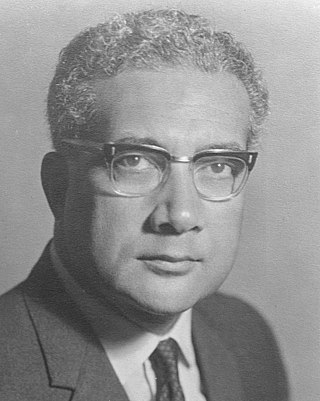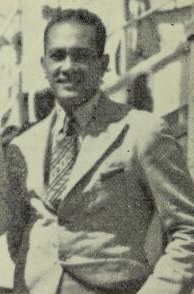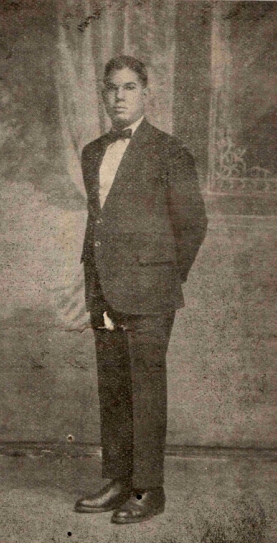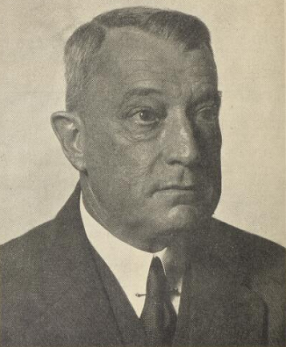Related Research Articles

Ratu Sir Kamisese Mara,was a Fijian politician,who served as Chief Minister from 1967 to 1970,when Fiji gained its independence from the United Kingdom,and,apart from one brief interruption in 1987,the first Prime Minister from 1970 to 1992. He subsequently served as President from 1993 to 2000.
Irene Jai Narayan was an Indian-born teacher and politician,who had a significant influence on politics in Fiji. She came to Fiji in 1959 after marrying Jai Narayan,a well known school Principal in Suva,and began her career as a teacher. She taught in DAV Girls School and MGM High School in Suva before entering politics.

Ratu Sir Edward Tuivanuavou Tugi Cakobau was a Fijian chief,soldier,politician and cricketer. He was a member of the Fijian legislature from 1944 until his death,also serving as Minister for Commerce,Industry and Labour and Deputy Prime Minister. During the 1940s he made two appearances for the Fiji national cricket team.
Semesa Koroikilai Sikivou,CBE was a Fijian academic,politician,and diplomat.

Rewa is a province of Fiji. With a land area of 272 square kilometers,it includes the capital city of Suva and is in two parts —one including part of Suva's hinterland to the west and a noncontiguous area to the east,separated from the rest of Rewa by Naitasiri Province. The province had a population of 108,016 at the 2017 census,making it Fiji's third most populous.

Pt. Vishnu Deo OBE was the first Fiji born and bred leader of the Indo-Fijians. From his initial election to the Legislative Council in 1929 to his retirement in 1959,he remained the most powerful Indo-Fijians political leader in Fiji. He was a staunch supporter of Arya Samaj in Fiji and also the editor of the first successful Hindi-language newspaper to be published in Fiji.
Kunwar Bachint Singh was an Indo-Fijian teacher and politician. He arrived in Fiji in 1927 as a teacher for the Arya Samaj but his association with Vishnu Deo led him to play an active role in aggressively promoting the Arya Samaj and finally into politics. He was elected into the Legislative Council as a protégéof Vishnu Deo but after the election took an independent stance opposed to the wishes of the majority of the Indo-Fijians. He supported nominated rather than elected representation,actively supported the war effort and even attempted to set up a farmers union opposed to a number of existing unions. The Government rewarded him for his loyalty by nominating him into the Legislative Council three times,appointing him as a Justice of the Peace and as the first Indo-Fijian member of the Executive Council.

Karam Chand Ramrakha was a former Fiji Indian lawyer,union leader and politician,who served in colonial Fiji's Legislative Council and independent Fiji's House of Representatives from 1966 to 1982.
Chandra Pal Tara Singh Bains was an Indo-Fijian politician. He served in the Legislative Council as a nominated member from 1963 to 1966.
Ben Mohammed Jannif was an Indo-Fijian businessman,scout leader,soccer administrator and politician. He was one of the architects of Fiji Indian Football Association and served as a member of the Legislative Council from 1950 to 1953.
This is a synopsis of organisations formed by Indians in Fiji. When they became free from the bondage of indenture and were able to organise themselves,they founded numerous organizations to seek social and political justice. These organisations promoted the teaching of Indian languages and religious practices and also to help others in time of need. Some of the successful organisations are listed below in the order in which they were established. Some,such as the National Federation Party,are no longer exclusively Indian,but are still predominantly so.

Sir Henry Milne Scott was a Fijian lawyer,businessman,politician and international cricketer. Alongside Robert Crompton,Henry Marks and John Maynard Hedstrom,he was one of the 'big four' that heavily influenced the Fijian economy and political sphere in the first half of the 20th century.
Sir Thomas William Alport Barker was a Fijian newspaper owner and politician. He owned the Fiji Times for several decades and was a member of the Legislative Council for over 20 years.

Ratu George Cokanauto Tuisawau was a Fijian chief and politician. He was Roko Tui of Rewa from 1936 until 1961,and spent two decades as a member of the Legislative Council.
Alfred Hancock Witherow was a New Zealand-born Fijian politician who served as a member of the Legislative Council between 1908 and 1911.
Major William Edmund Willoughby-Tottenham was British army major and later a politician in Fiji,where he served as a member of the Legislative Council in two spells between 1922 and 1937.

A by-election for the Rewa–Suva seat in the House of Representatives of Fiji was held in December 1970 following the death of incumbent MP Alipate Sikivou in September 1970. The result was a victory for Uraia Koroi of the Alliance Party.

William Granger Johnson was a Fijian businessman and politician,serving as a nominated member of the Legislative Council in two spells during the 1940s and 1950s.

Douglas Walkden-Brown was an Australia-born Fijian educator,politician and diplomat. He was a member of the House of Representatives from 1966 to 1977 and served as Minister for Natural Resources and Minister for Agriculture,Fisheries and Forests between 1967 and 1977,later becoming Fijian consul in Sydney.
References
- 1 2 3 4 Mr. Alipate Sikivou Pacific Islands Monthly, October 1970, p139